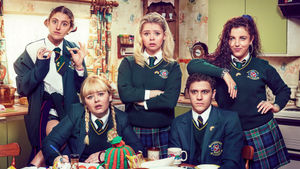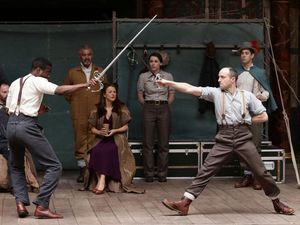Peter Rhodes on mumbling movies, Russian denials and HS2 – a step into Mordor
Read the latest column from Peter Rhodes.

A useful Russian phrase. “Nichegodelat' so mnoy priyate.” It translates roughly as: “Nothing to do with me, mate” and is particularly useful in the Kremlin for answering that troublesome question: “Who poisoned Alexei Navalny?”
HS2 has announced the “formal start” of construction of the high-speed rail line between London and Birmingham. This comes as a surprise to people living close to this misbegotten white elephant. On daily walks or country drives, they suddenly encounter the massive concrete ramps and steel fences where 1,000 years of gentle cultivation is being ripped apart by a vanity project created for the wealthy and built on the misery of other people. At old Stoneleigh Park you have barely crossed the lovely mediaeval packhorse bridge before you find the HS2 fences. It is, in Hobbit terms, like stepping out of the Shire and into Mordor.
It is the unstoppable, undemocratic nature of HS2 that makes people so bitter. There was never any public demand for it and the finances were always dubious. Yet even after the price quadrupled to a ludicrous £1,000 million per mile, even after coronavirus stripped the railways of their passengers, and without any new studies to show how HS2 could fill its seats in a post-Covid era, the project rolls on.
No, it's not your ears that are letting you down. By common consent among critics who know their stuff, the dialogue in modern movies is harder to hear than in older films. Critic Ralph Jones, reviewing the much-heralded Christopher Nolan film, Tenet, describes a “wonderful exchange” between Robert Pattinson and John David Washington. “Hngmmhmmh,” says Pattinson. “Mmghh nmmhhmmmm nghhh,” replies Washington.
Why is there so much mumbling on movie and TV productions? Explanations vary. Some pundits blame directors for concentrating on special effects to the exclusion of all else. Others suggest that, because the cast and crew are word-perfect with the script, having read it dozens of times, they genuinely believe it's understandable to all. The rest of us harrumph and turn up the volume or, on TV, switch on the subtitles and wonder why dramas made in the 1960s are easier to follow than those made today.
I'm a great fan of TV subtitles. They not only cut through the mumbling like a scalpel but also ease you into dramas using strong regional accents, until you can follow the lingo. After a couple of episodes with subtitles, Derry Girls(C4) suddenly makes sense. Subtitles also have the advantage of picking up background dialogue, like the gossip in a crowded pub, that listeners were never intended to hear. Best of all, when a piece of music starts, subtitles sometimes tell you what it is. The Derry Girls theme? Dreams by The Cranberries.
Mind you, even subtitles can't always decipher a movie. Among the mixed reviews for Tenet, is this: “A film which insists on detailing its pseudo-science while also conceding you probably won’t have followed a thing.”





